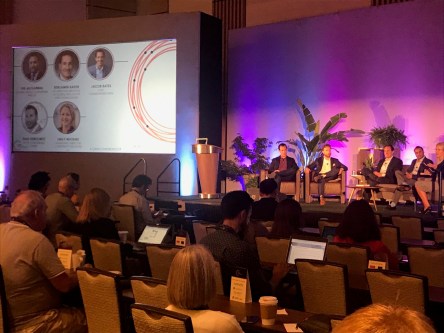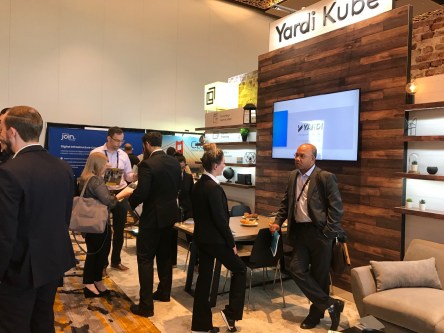After Day 1 of the 2019 GWA Conference, the event continued with conversations surrounding technology, commercial real estate, evolution in workspace design and franchising. Additional conference highlights included: Design evolution This session explored how coworking spaces pair the design of their spaces with marketing and branding for success. Bond Collective strives to create sophisticated, chic spaces with an exclusive club-like atmosphere. No two locations are alike, each geared toward the specific neighborhood they are based in. The spaces are intentionally branded minimally, and designed as symbols of an upscale modern lifestyle. Typically, the spaces feature separate phone and meeting booths for privacy and multiple seating options, such as bars, couches and traditional worktables. Canada’s IQ Office Suites has established unique design differentiators. Following an initial 4,000sf project in Toronto, they have expanded to five locations, soon to be nine, in major Canadian cities. IQ Office Suites’ decisions on where to establish new spaces are based on the surrounding retail, dining and entertainment options on the same street. Window offices are a huge draw, as well as kitchen space, meeting areas, and work/play areas with a bar and event space. Private offices are also important. IQ’s crown jewel is a Toronto space with 18-foot ceilings and a 5,000sf terrace. This location features meeting rooms, team suites, and other group centric areas. The design has moved away from dedicated desks, something many coworking spaces still consider crucial. Winning the corporate occupier One of the final sessions of GWA featured Dale Hersowitz, vice president of coworking for Yardi, as part of a panel discussing how to attract enterprise occupiers. Panelist Jacob Bates, CEO of CommonGrounds, described how technology has essentially made software into a service industry, and this is vital for corporate clients. Hersowitz explained that providing...
2019 GWA Recap
Yardi Kube a Sponsor
The 2019 GWA Conference, held this earlier this month in Washington, D.C., examined the latest trends in coworking. Yardi Kube was once again a platinum sponsor of this well-attended event, demonstrating a commitment to the coworking industry and showcasing new updates to the comprehensive coworking management platform. Let’s recap some of the highlights from conference breakout sessions. (Stay tuned for Part Two of this report, with additional insights.) Positioning your coworking space Led by Kevin Whelan, founder of Everspaces, this session was a discussion about customer purchases and what coworking operators can do to position themselves for quick success. Whelan explained that people, in general, buy on convenience or fidelity. Convenience is the purchase that’s based on how easily you can get something. Price, flexibility, and other ease of access factors play into these decisions. Fidelity is all about the experience. Customers will purchase things they truly love (think iPhones), irrespective of price. These purchases are based on status, visibility, elite design and service. Successful coworking operators must define themselves to attract members looking to purchase based on one of the two categories. For example, NeueHouse prides itself on providing a world class experience in Manhattan, NY and Hollywood, Calif. As a result, their pricing is considered among the highest in the industry. Nevertheless, NeueHouse is very successful. Regus, an industry leader, does not provide a ‘wow’ experience. But the company operates numerous coworking locations in major cities, so ease of access and flexibility when traveling is high. Regus price points are considered affordable. Both NeueHouse and Regus are profitable industry leaders in their own categories. Even niche spaces like The Wing, a women’s only coworking space, also operates a magazine, podcast, and retail store, among other ventures. But The Wing’s owners successfully use...


